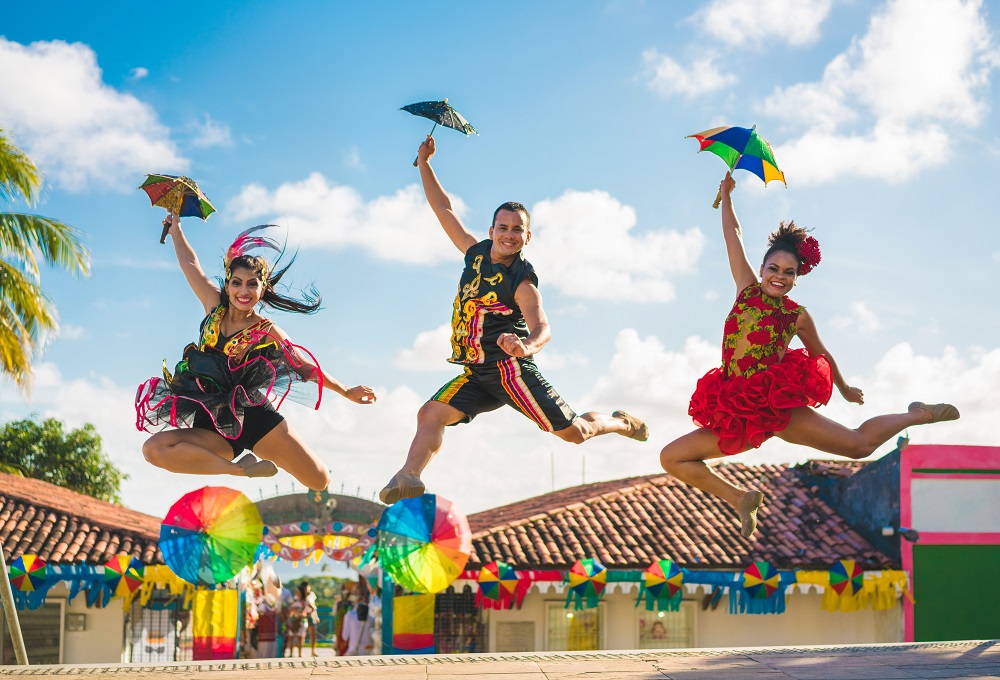The Rio Carnival will always be the first choice when it comes to celebrating Rio Carnival weekend, but there are other carnivals also worth attending. The Recife and Olinda carnival has a different approach to merry making and celebrations. It is influenced mainly by Indigenous peoples and African tribes who were brought to Brazil through the slave trade, along with European customs.
Parties in Recife and Olinda start as early as December but the carnival celebrations start from Friday and will end on the Tuesday before Lent.
The history of the Recife and Olinda Carnival
Recife was one of the places in Brazil with a flourishing sugarcane industry under the management of Duarte Coelho Pereira. Recife was one of the very first settlements of the Portuguese.
They later realized that employment of native Brazilians was not improving the sugarcane business so instead they started to get African slaves to work in the fields. The tribes of these African slaves were highly influenced by the music, art, dance, and culinary forms of Brazil.
The Recife carnival celebrations
Aside from the Rio Carnival, the Recife and Olinda carnivals are also one of the more popular carnivals in Brazil. Over 1.5 million people join the 6 days celebration in Recife filled with Samba music and dance. Two of the most awaited parts of the Recife carnival celebrations are the Galo da Madrugada, which translates to the Rooster of the Dawn and the Night of the Silent drums.
The Galo da Madrugada celebration symbolizes the start of the Recife carnival while the Night of the Silent Drums is a tribute to all the African slaves who lost their lives.

The Olinda Carnival
Similar to the Recife Carnival, the Olinda carnival is also a celebration filled with exciting Samba music and enthralling dance moves. At the crack of dawn, you will see people of all ages partying out in the streets all dressed in their most exotic and one of a kind costumes. One of the more popular parts of the carnival is when the New Virgens do Bairro Novo de Olinda inaugurate the start of the Olinda Carnival week.
There are also huge giant papier-mâché puppets which are called Bonecos de Olinda that march all throughout the city.
Dancing to Frevo
One of the most popular music styles used in the Recife carnival is the Frevo which is a combination of Afro-Brazilian and European culture. The Recife carnival is free of charge to anyone who wants to attend. Having the largest street bands, they give their music more definition by playing brass instruments. Dancers and performers who are included in the carnival play and dance to the tune of Frevo.
Carnival Memories
Do you want to document your adventures in Rio, or save the photos to show them to your friends back home? You can bring your own camera and share with us your most unforgettable experience at the Recife and Olinda Carnival. Recife and Olinda carnival tickets normally sell out quickly so reserve your hotel accommodation and air tickets in advance.




